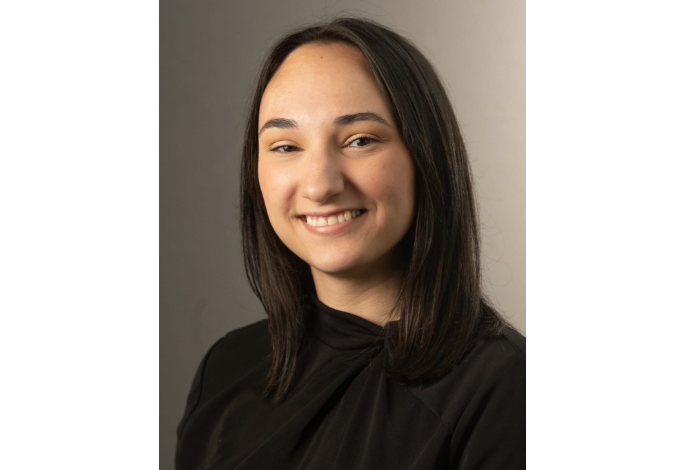What to Know Before Starting Pharmacy School
Tips for P1 pharmacy students on navigating orientation, studying, time management, involvement, and well-being to succeed in pharmacy school.

Author: Samantha Naples, PharmD Candidate 2027
Editor: Kristen Lindauer, PharmD, BCPS, AAHIVP
Hey P1s! At this point in your career, you’ve probably researched everything you could about pharmacy, successfully interviewed with schools, been accepted, and finished your undergraduate courses. Now what comes next? Whether you’re nervous about starting your first year of pharmacy school or are excited for what’s in store for you, I’ve prepared some tips for you that my colleagues and I have collected over our time in pharmacy school that may help you along your journey. Let’s talk about it!

The First Day
On your first day of pharmacy school, there will likely be an orientation where you are introduced to the building, classrooms, faculty/staff, upper classmen, student organizations, and your future colleagues. This is where my first tip comes in: be curious and present! Don’t be afraid to introduce yourself to the people sitting around you or to share a (truly) fun fact about yourself in the inevitable ice breaker session. I have met some of my best friends in pharmacy school by doing just that! Also, don’t be afraid to take notes during orientation because there will be a lot of information given to you. Take note of the IT technician’s contact, write down the emails of professors who teach in areas of pharmacy you may have an interest in, and especially write down what all the acronyms mean for the student organizations. I think it may have taken me the first 6 months of P1 year to get them all down. Plus, the more notes you have, the more opportunities you can create for yourself! For example, you can reach out to a specific professor to ask questions about what they do for their job, or you can reach out to the president of one of the student organizations to see how you can be more involved with your community.
- Take note of the IT technician’s contact
- Write down the emails of professors who teach in areas of pharmacy you may have an interest in
- Write down what all the acronyms mean for the student organizations
Moving on, my next tip is to have an open mind. The people you meet will likely have different mannerisms, backgrounds, thought processes, learning/study habits, and teaching styles. This is important as a pharmacy student because there is always something you can learn from someone you meet, especially your colleagues and faculty in pharmacy school! It is also important because you don’t want to compare yourself to others, as this can lead to feelings of doubt and unnecessary competition. You will be pushed to your limits in order to grow exponentially personally, professionally, and clinically. A closed mind can deter your growth, while an open mind can lead to different avenues of solutions, opportunities, and can make it easier to handle change.
Change is huge in the world of pharmacy because there are constantly new drug therapies coming to market and clinical guideline updates. I have always been told that the second you graduate from pharmacy school, almost everything you learned about the different disease states will be outdated. So, for my next tip, know and remember how to use your clinical and pharmacy resources! One class I did not pay enough attention to during my P1 year was our drug information course, where we learned how to find primary literature and read treatment guidelines. If you think about it, practicing pharmacists don’t stay up to date on new information by sitting through a 2-hour lecture like students do. They must locate and read the clinical guidelines themselves, so it is a very important skill to have. Also, with knowing your resources, I recommend downloading or bookmarking the guidelines or drug trials your professors reference in class because they will become very useful in P2 year and on!
- Know and remember how to use your clinical and pharmacy resources
- Pay attention during your drug information course
- Download or bookmark the guidelines or drug trials your professors reference
Studying
Now, you may be wondering what kinds of tips I have when it comes to studying. Every person learns and studies differently, so I can’t tell you what will work best for you, but I can tell you what your end goal of studying should be. First, when it comes to learning the material, I recommend that you try to understand the concept instead of memorizing what is on the slideshow. I find it best to do this by writing out the concept and drawing arrows connecting the points together. Then, you can talk it through out loud, almost as if you were teaching it to someone else. I think this is one of the most important skills to have as a pharmacy student because when it comes to studying for an exam, you won’t have to cram or memorize the big-picture topics. You can also take a notecard or something similar to cover up the section of your notes that you want to study, and sort of quiz yourself on the information covered up. I believe this method helps form long-term memory, which should be the endpoint of your studying, and that will come in handy when studying for the NAPLEX.

Time Management, Work, and Involvement
My next set of tips involves working while in school, being involved in student organizations, and time management. It is absolutely possible to accomplish all of these things on top of studying as long as you focus on time management. First, I recommend having some sort of planner, whether it be paper, a computer, or a calendar on your phone. You want to keep track of class times, assignments, quizzes, and tests to know where your free time will fall. Next, if you plan to work while in pharmacy school, it is of the utmost importance to be realistic and upfront with your employer about how much you can work. Typically, I see students working one 5-hour shift during the weekdays and every other weekend to stay afloat in school.
When it comes to being involved, student organizations will hold many different events for students to practice patient interaction at such as vaccine clinics, diabetes education, teaching patients how to read a nutrition facts label, student health fairs, and others. You may feel like you don’t know anything about pharmacy as a P1, but at these events, there is always a spot for a P1 to be involved! You will learn so much from working with the other students at the events, and you’ll be ahead of the game the sooner you start to get involved. Also, as a P1, you can oftentimes run for a “P1 liaison” position in particular student organizations that give you a little insight into what holding a leadership position looks like. This means that you will attend the leadership meetings of that organization to keep notes and relay some of that information to your class, such as upcoming events, fundraisers, or other opportunities for involvement to keep an eye out for. When it comes to the end of P1 year, when the student organizations hold their elections for all of the different leadership positions, you can run for the ones you are most interested in; for P2 year (or on), you can host your own events tailored to your position!
Lastly, let’s talk about our well-being and mental health while in pharmacy school. This is a very challenging and demanding time of our lives that requires us to be at the top of our game, so how do we do that? First, make sure to keep in touch with your family and friends from your hometown. You may feel like there is not time to keep up with them, but remember that there is always time to take a break because they keep us from burning out. Set aside time during the week, at least an hour or two, to catch up with family, grab dinner with pharmacy school friends, watch a movie, read a book, clean your space, or anything else you may be interested in. I also recommend looking into your school’s resources because they may offer free mental health counseling, tutoring to relieve some stress from studying, or other types of services. Finally, be honest when you are struggling so that you or your friends can recognize when you need help. It is absolutely okay to be vulnerable because every student will need some sort of help over the course of pharmacy school.
- Be realistic and upfront with your employer about how much you can work
- Run for a “P1 liaison” position in student organizations that interest you to gain an idea of what a leadership position entails
- There is always time to take a break. Breaks help keep us from burning out!
I hope that these tips were able to give you a good insight as to what pharmacy school holds and relieves some of your nervousness about starting P1 year. Remember along your journey to be curious, present, open-minded, involved, and knowledgeable. Everyone’s path before, during, and after pharmacy school is different, so don’t spend your time comparing yourself to others or worrying about what else you could be doing. There was a point in time when you dreamed of being where you are now! Enjoy your time in pharmacy school, and good luck P1s!


